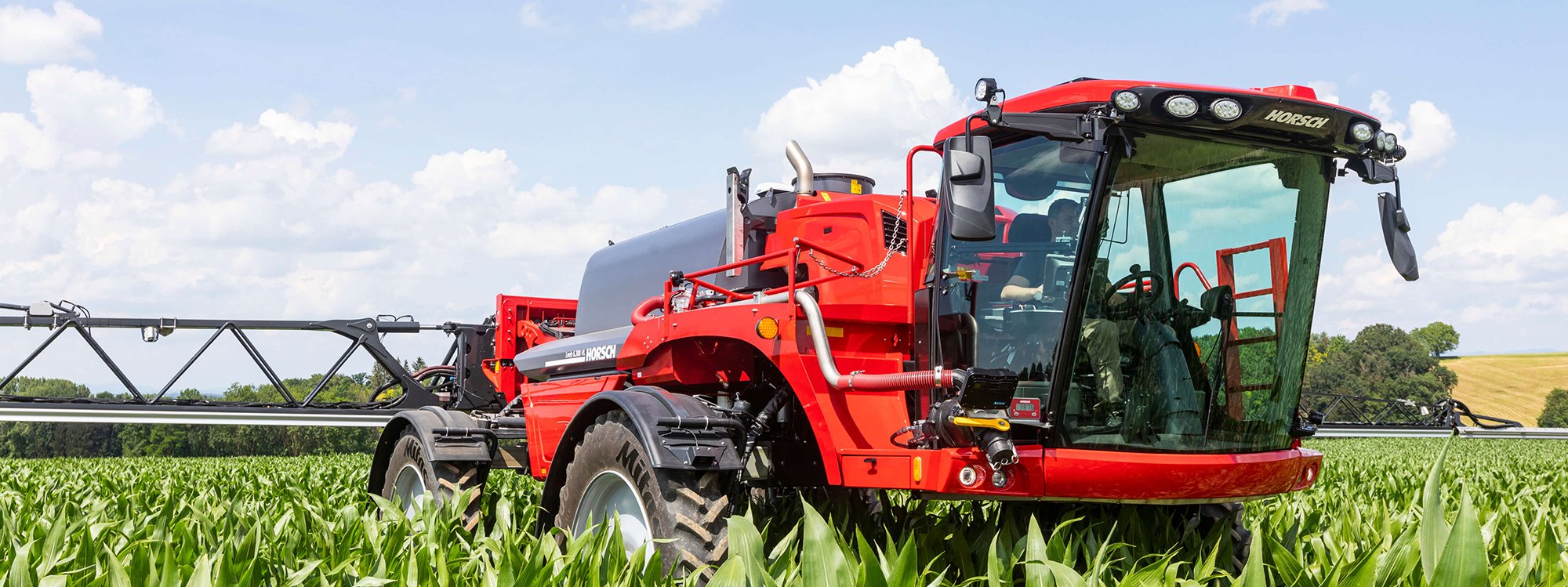Helping people to help themselves

Wolfgang Nürnberger, managing director of the Fachagentur Bodenbearbeitung – Saat – Pflanzenschutz GmbH, reports on the activities to support small farmers in Cuba

Traditionally, at the end of the year the HORSCH company holds a staff meeting together with an end-of-year celebration for all employees. On the occasion of such a staff meeting Traugott Horsch informed about HORSCH’s social commitment which is carried out by the HORSCH Foundation.
I was especially taken with the projects in Nicaragua where small farmers in the mountain regions were provided with knowledge and practical instructions how to cultivate agricultural crops in an erosion-reducing way.
During my holidays in 2005 my wife and I visited Cuba for the first time and we were impressed by the friendliness and the good education of the people and the almost complete lack of crime.

In the 90s, when I was still employed with the HORSCH company, I had already supported financially the project “Milk for Cuba’s children”.
In the course of further intensive discussions with Traugott Horsch, who
lived in Nicaragua for quite a long time, I grew the wish to carry out such activities in Cuba, too.
Therefore, my wife and I had to find an association which is officially recognised and, thus, is able to issue a corresponding contribution receipt which is effective for tax purposes.
We finally got to know the Berlinbased association “KarEn Verein zur Förderung alternativer Energien in der Karibik e.V.“ (KarEn Association for the promotion of alternative energies in the Caribbean) a member of which we have become.
Together with the KarEn board member Gerda Daenecke I travelled to Cuba
in February 2009. We visited several KarEn projects, among them school camps, which had been heavily damaged by hurricanes and have been renovated by KarEn, as well as the Boyeros, a quarter on the outskirts of Havana where projects for a stable water supply via wells with solar and wind energy are carried out.
During our second trip we started talking to ANAP, the organization of private small farmers in Cuba. They introduced us to the project “Erosion-reducing cultivation of maize, soya and beans in the mountainous regions of the middle provinces Cienfuegos, Santa Clara and Sancti Spiritus“ and we agreed that ANAP would send three farmers from these regions to Nicaragua to learn about the experiences of the local small farmers. The airfares in April 2010 were paid by means of a donation to KarEn, the costs for the stay in Nicaragua was taken over by the HORSCH Foundation. Traugott Horsch presented each of the Cuban farmers with a matraca, a simple dibble which allows for sowing and applying fertiliser manually at the same time in a sort of direct seeding.
In September 2010 Traugott Horsch and I together with ANAP representatives visited the three middle provinces and we were surprised at the widespread effect the three matracas had developed in this short time. As the Cuban farmers are connected via loose cooperatives, the matracas were used by several farmers. Here we noticed for the first time how important a good education is for the development of the Third World. The numerous farmers that took part in the meeting were able to understand Traugott Horsch’s explanations which he provided with great commitment in Spanish. The more so as they had understood that the introduction of this technology is attended by a significant increase in productivity and a drastic reduction of physical stress.

So far one man made a hole in the ground with a hoe. A second man put a grain of maize into the hole which was closed afterwards. Now one man is sufficient to cultivate more area per day with better quality and a considerably higher productivity.
On our return and after presentation of a corresponding Cuban project our positive impressions made us buy a container with 940 matracas as well as three animal-drawn one-row seed drills in Brazil and have them transported to Havana. We were very grateful that the HORSCH Foundation took over 50 per cent of the costs by means of a donation to the non-government organisation KarEn.
On the occasion of my next trip in March 2011 I was able to witness personally the delivery of the matracas which had been sold to the interested farmers for a symbolic price of 50 Cuban pesos (corresponds to approx. two Euro).

The aim of all these activities is the production increase of the individual farms to enable them to gain a little more wealth due to their effort and their skills. You are, however, bound to notice that currently there still are narrow limits set by the prevailing political situation. We would like to see the Cuban farmers pay a higher price for our intended import of 150 animal-related one-row seed drills from Brazil in order to find those farmers who are really keen on obtaining more income due to their own effort. Our respective suggestion to charge a peso amount of the equivalent of two tons of maize per seed drill has not been accepted so far so that the project had to be postponed to 2013. During our next trip in April 2012 we visited the KarEn-initiated projects for artificial irrigation by means of plunger pumps and solar panels.
The donations that were collected on the occasion of my company’s anniversary and my 60th birthday and which amounted to approx. 20,000 Euro went into these important projects to help the Cubans to support themselves.
